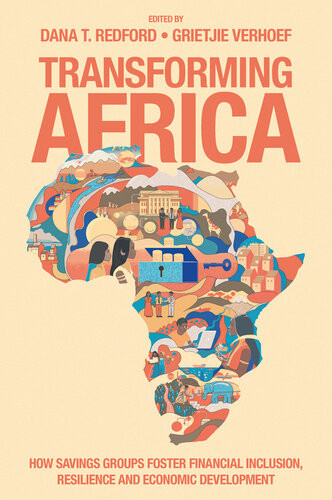

Most ebook files are in PDF format, so you can easily read them using various software such as Foxit Reader or directly on the Google Chrome browser.
Some ebook files are released by publishers in other formats such as .awz, .mobi, .epub, .fb2, etc. You may need to install specific software to read these formats on mobile/PC, such as Calibre.
Please read the tutorial at this link: https://ebookbell.com/faq
We offer FREE conversion to the popular formats you request; however, this may take some time. Therefore, right after payment, please email us, and we will try to provide the service as quickly as possible.
For some exceptional file formats or broken links (if any), please refrain from opening any disputes. Instead, email us first, and we will try to assist within a maximum of 6 hours.
EbookBell Team

4.1
50 reviewsFormal financial systems are emerging rapidly in Africa, driven by rising financial literacy and technological innovation, and accelerated by informal savings groups that foster inclusive growth across the continent. While prevalent among the poor, the savings groups phenomenon extends to Africa's growing, yet still fragile, middle class, underpinning economic resilience and providing a tool for community participation as well as cooperative entrepreneurial development. These groups are also becoming important agents for social and economic empowerment, independent of age and gender.
Transforming Africa: How Savings Groups Foster Financial Inclusion, Resilience and Economic Development gives voice to the local and international agents of grassroots economic empowerment initiatives that thrive in Africa. Presenting a unique through in-depth empirical research into savings group activities in over a dozen African countries, this book explores savings groups through the lens of financial inclusion, reflecting on formal finance, economic and social outcomes.
SG4Africa was launched in April 2018 to explore these dimensions of savings groups and provide novel, empirically-grounded research across different geographies in Africa. Led jointly by the Policy Experimentation & Evaluation Platform and the University of Johannesburg, the SG4Africa consortium includes members from more than a dozen African countries.